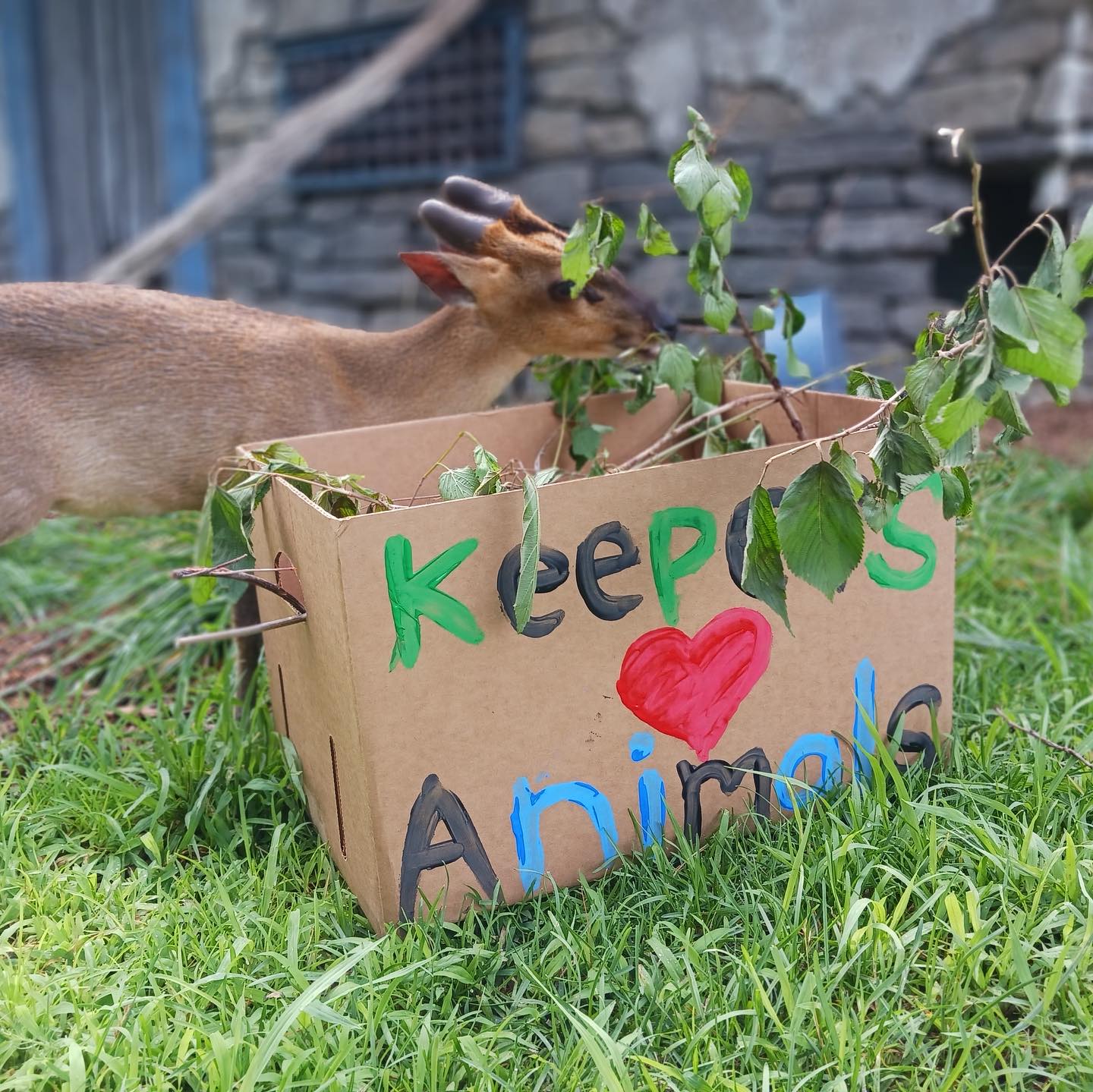Summary:
1. The Importance of National Zookeeper Week: Recognizing zookeepers’ dedication and hard work in caring for animals and conserving wildlife.
2. The Everyday Life of a Zookeeper: Exploring zookeepers’ diverse tasks and responsibilities and their challenges.
3. Behind the Scenes: Understanding the training, education, and skills required to become a zookeeper.
4. The Bond Between Zookeepers and Animals: Highlighting the unique relationships fostered between zookeepers and the animals they care for.
5. Conservation Efforts: Discuss the role of zookeepers in conservation and their impact on preserving endangered species.
—
From our animals to you, Happy National Zookeeper Week again to all animal care staff who dedicate their time and energy to the animals they love. You guys, well… You’re keepers! 😊
Zoos offer visitors a thrilling and educational experience, providing a unique opportunity to observe and learn about various species worldwide. However, many people may not realize the incredible amount of effort and dedication that goes into the daily care of these magnificent animals. That’s why National Zookeeper Week is such an important celebration, as it recognizes and honors the exceptional work of zookeepers across the country.
So, let’s look at what it means to be a zookeeper and why they deserve our admiration and appreciation.
The everyday life of a zookeeper is far from ordinary. They are responsible for the welfare, health, and overall well-being of the animals under their care. From feeding and cleaning to providing enrichment activities, their daily tasks are as diverse as the species they care for.
Imagine waking up early, even before the sun rises, to prepare meals for various animals with different dietary needs. Zookeepers ensure that each animal receives a balanced and nutritious diet, meticulously evaluating portion sizes and nutritional requirements for their charges. Some animals require specialized diets, and zookeepers must adapt their feeding techniques accordingly.
Beyond feeding, zookeepers are also tasked with maintaining the animals’ enclosures, ensuring they mimic their natural habitats as closely as possible. This involves creating and enriching their living spaces with toys, puzzles, and environmental stimuli to keep them mentally and physically engaged. Zookeepers constantly strive to provide an enriching environment that helps prevent boredom and encourages natural behaviors.
Additionally, zookeepers are dedicated to providing the best possible healthcare to their animals. This entails regular check-ups, vaccinations, preventive care measures, and thorough examinations and treatments when an animal is sick or injured. They work closely with veterinarians to monitor the animals’ health and administer medications or treatments as needed. Zookeepers serve as both caregivers and advocates for the animals in their care.
Becoming a zookeeper requires a unique combination of education, training, and hands-on experience. Many zookeepers have degrees in biology, zoology, or animal sciences. However, what sets them apart is their practical experience in working with animals. Some gain this experience through internships or volunteer opportunities in zoos, while others start their journey as zoo educators or assistants. The key is a genuine animal passion and a commitment to their welfare.
The bond between zookeepers and the animals they care for is remarkable. Often, zookeepers spend more time with the animals than anyone else, developing solid relationships built on trust and mutual respect. They observe and learn the subtle nuances of each animal’s behavior, allowing them to anticipate their needs and provide appropriate care. The bond they forge with the animals under their care is a testament to the dedication and love they bring to their work.
But zookeepers’ impact extends far beyond the walls of the zoo. They play a crucial role in conservation efforts and in preserving endangered species. Many zoos participate in breeding programs designed to ensure the survival of endangered animals. Zookeepers work closely with these programs, carefully monitoring animal behavior and reproductive cycles, assisting in artificial insemination if necessary, and providing round-the-clock care to newborns. By raising awareness and actively participating in conservation initiatives, zookeepers contribute immensely to wildlife preservation.
In conclusion, National Zookeeper Week reminds zookeepers of the dedication, hard work, and genuine love they bring to their profession. Their role extends beyond mere caregiving; they are custodians of our natural world, wildlife conservation ambassadors, and animal welfare advocates. So, next time you visit a zoo, take a moment to appreciate and acknowledge the efforts of these incredible individuals who make it all possible. Happy National Zookeeper Week!
*****
Source Description
From our animals to you, Happy National Zookeeper Week again to all the animal care staff who dedicate their time and energy to the animals who love so much. You guys, well… You’re keepers! 😊


